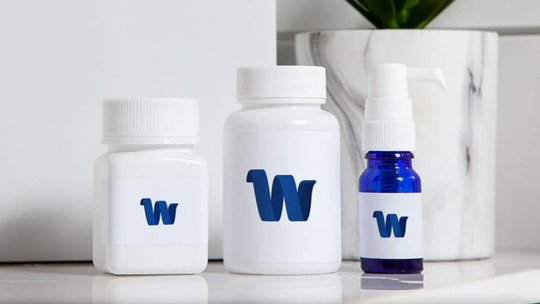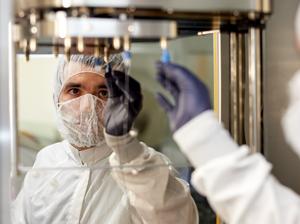
During the Covid-19 pandemic, ear, nose and throat specialist Dr. Manan Shah shifted from treating patients out of his allergy practice in Lakewood to offering care completely online.
Realizing the convenience for patients and the potential to treat many more people, Shah was inspired to start the health-tech company Wyndly with the aim to take allergy treatment to the masses. Shah partnered with his cousin, software engineer Aakash Shah, to found Wyndly in 2020.
On Wednesday, they announced they raised $2 million in venture capital to reach more patients.
"We wanted to make sure we could give the exact same level of results online as we could in our physical office, and so we spent 2021 and 2022 building it up," said Manan Shah, the startup's chief medical officer. "We've just had a really good experience, and we've been tracking our outcomes. Now, we're ready to grow."
Investors in the round included Y Combinator, Goodwater Capital, Civilization Ventures and Boulder-based Sweater Ventures, as well as Kevin Mahaffey, co-founder of the cybersecurity company Lookout.
So far, Wyndly has treated thousands of patients suffering from environmental allergies, including tree pollen, grass pollen, weed pollen, dust mites, mold, cats and dogs. The startup plans to use its recent infusion of capital to increase patient access to its care.
"We started talking to more and more patients, especially in areas that are rural," Manan Shah said. "They don't have access to this type of care. We wanted to raise [capital] so that we could bring awareness to this opportunity. You don't have to take Zyrtec [for] the rest of your life. You can live better."

It wasn't until Manan Shah was going through surgical residency that he learned it was possible to build immunity to allergies.
At the time, Shah was searching for a way to treat his allergy to cats. He was a resident physician at the University of Connecticut, a large research hospital, and a researcher there introduced him to a method called sublingual immunotherapy. Through the treatment, patients are prescribed an oral medication that contains trace amounts of their allergens. The medication is meant to desensitize patients' immune systems over time.
"Everyone has been told that the way you should treat your allergies is by using Flonase forever," Shah said. "I think we as physicians haven't done a good job of letting people know this is something you can fix. I was a doctor, and I didn't know. I just thought I had to avoid cats for my whole life."
While exposure to a cat would at one point result in Shah going to the emergency room, he can now stay overnight in a home with a cat and experience no symptoms, he said.
It's this type of treatment that Wyndly is offering its patients, and it's available across all 50 states. To begin the process, prospective patients can go to Wyndly's website to purchase an at-home allergy test kit, which on Wednesday was on sale for $250.
Following the test, a patient meets with a physician, either in person at Manan Shah's Lakewood office or virtually. Wyndly has five doctors across the country who meet online with patients. During the initial meeting, a physician creates a customized treatment plan for a patient's particular allergies.
After that, Wyndly ships medications straight to patients' homes. The medication comes in the form of sublingual drops and tablets that patients put under their tongues every day. Purchasing a monthly subscription to the medication costs about $99 per month.
The path to improvement for allergy sufferers varies by patient. Some patients start to notice the benefits after three to six months, Manan Shah said. To eliminate all symptoms, the process typically takes about three years.
Allergy treatments will only become more important over time, Manan Shah said. Climate change is already leading to a rise in pollen amounts and mold, increasing the risk of allergy attacks, according to the U.S. Department of Agriculture.
"The climate is getting warmer, we have worse and worse air quality, and all these things are increasing allergies," Manan Shah said. "There will be more and more allergy sufferers, but hopefully, as more people learn about this, they'll learn there's a better way to live."








